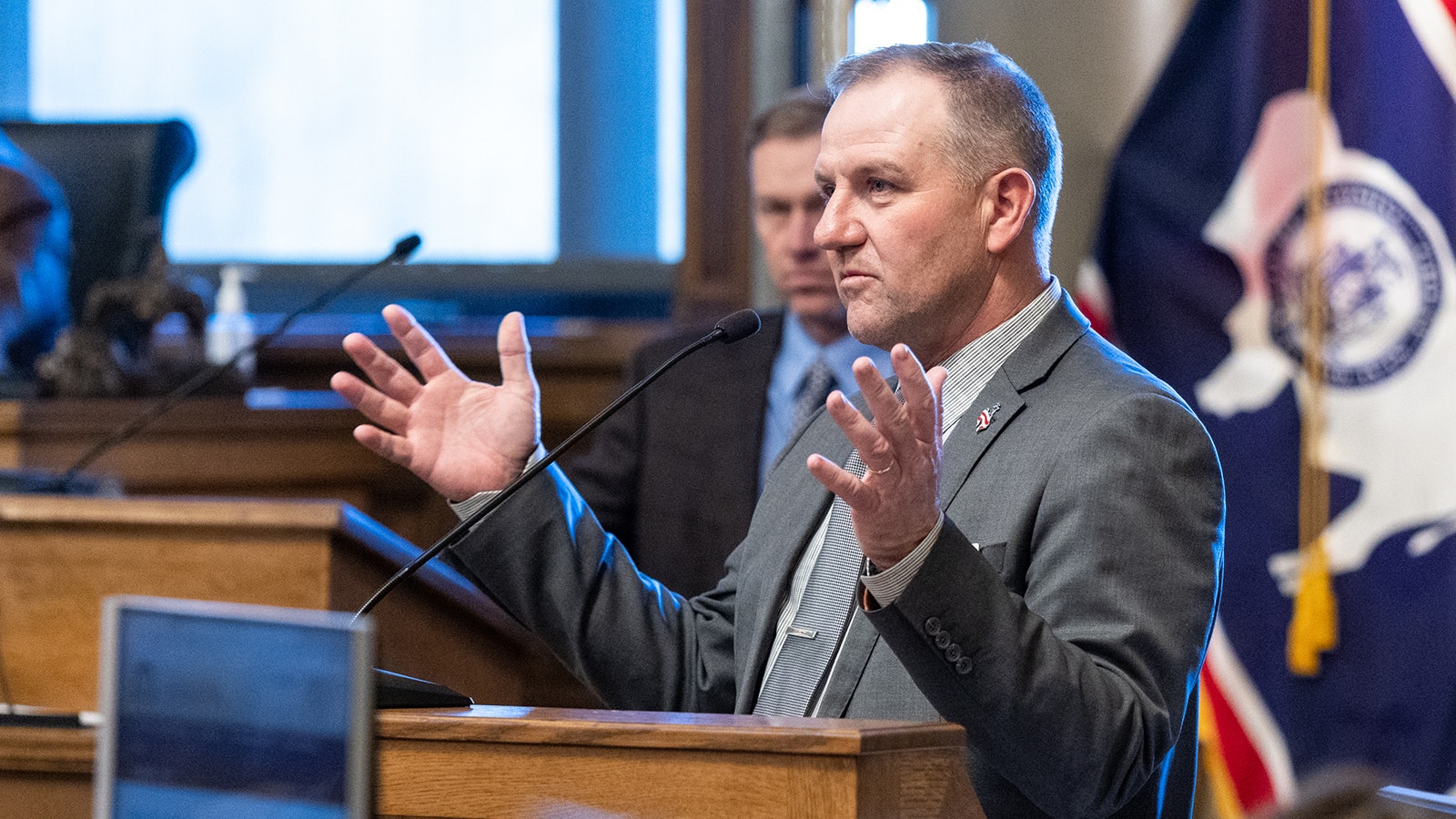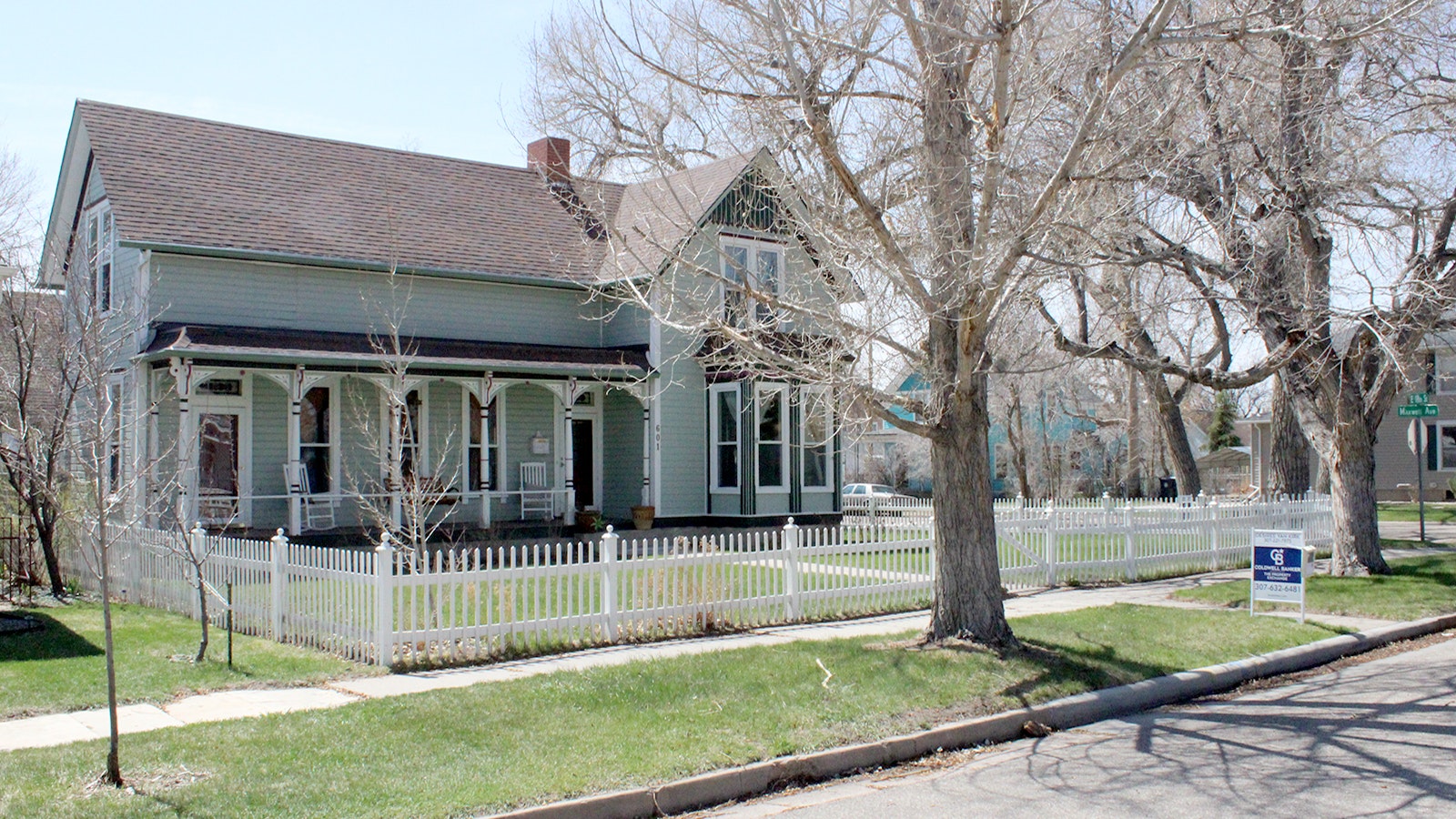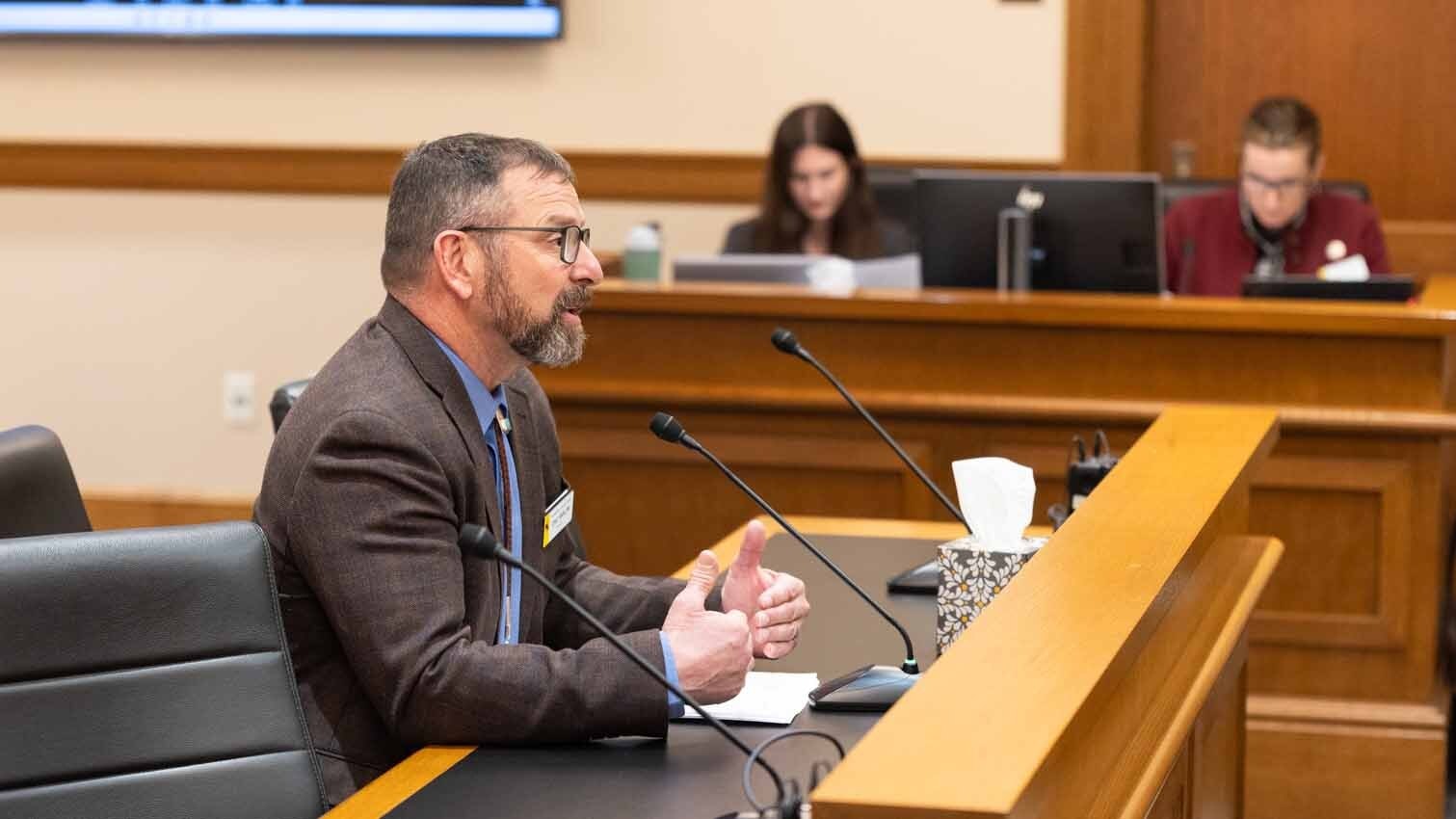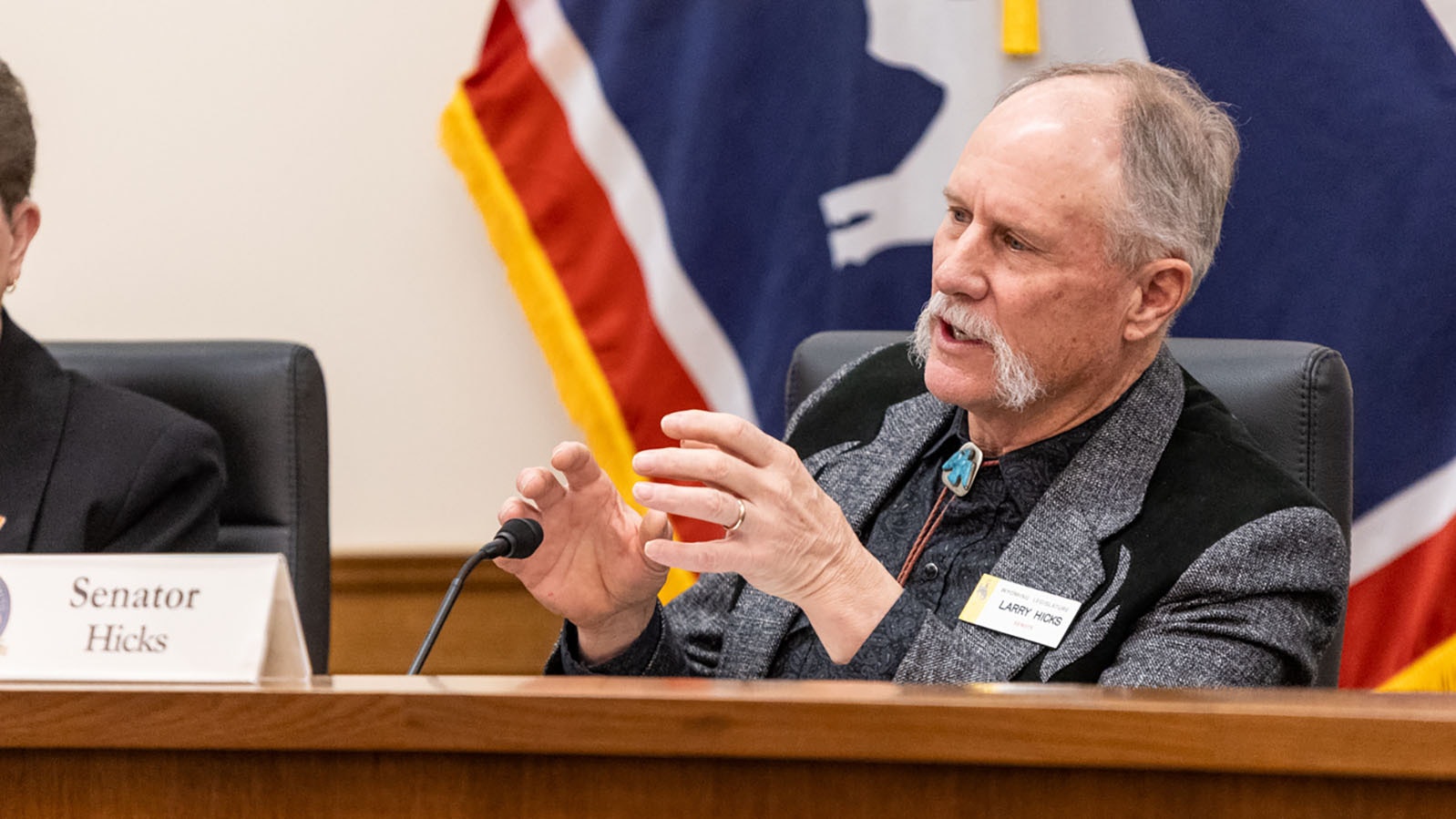There hasn’t been much talk about a constitutional amendment going before voters this November until recently.
Constitutional Amendment A asks the voters if they would like to support creating a separate, fourth class of taxation status for certain residential properties. If approved, the amendment would create a subclass of primary residences that could be assessed and taxed at a different rate than other properties in the state.
The Wyoming Constitution now requires property to be assessed at full value, uniformly, in the three property classes of minerals, industrial and all other real and personal property. Commercial property, real and residential property are all taxed together at the 9.5% rate in Wyoming. The amendment would give the Legislature the option to tax homeowners that live in their homes at a different rate.
This would exclude second or vacation homes and people who rent out their property to other people.
Supporters Turning Against
The proposal to bring the constitutional amendment to the voters was passed by the Legislature in 2023. At the time, it received minimal pushback and passed through both chambers with relatively large majorities. It was seen by many as a viable solution to spiking property taxes after the COVID-19 pandemic.
One of those who supported it at the time, House Majority Floor Leader Rep. Chip Neiman, R-Hulett, now says he’s against it because it will simply result in an increase in the tax rate for commercial and all other real property.
“Although I voted for it, I’ve got some pretty serious buyer’s remorse,” he said. “It isn’t going to make a difference if we don’t control spending. We might be able to reduce residential (rates), which is awesome, but it won’t matter.”
Cody resident Vince Vanata is worried about the amendment potentially opening up a Pandora's box of unexpected consequences, such as the Legislature raising residential property tax rates rather than lowering them as many people intended when passing the 2023 bill.
“I don’t think we can all look at this and assume we’re going to lower property taxes,” Vanata said. “This constitutional amendment creates a Pandora’s box. Whoever opens the box is going to get something good or something bad. It’s definitely an unknown.”
As written, the 2023 legislation says lawmakers “may” create a subclass for occupied residential homeowners. This gives flexibility to lawmakers to do nothing, lower the assessment rates or increase the rates.
But Laurie Urbigkit, the government affairs director for Wyoming Realtors and treasurer of the 4Wyoming political action committee, said fears that the Legislature might raise property tax rates are wholly detached from reality. The Wyoming Legislature has moved in a rightward conservative direction in recent years, which was amplified further by the results of the August primary, giving the ultra conservative Wyoming Freedom Caucus a nearly guaranteed majority in the state House entering the 2025 legislative session.
“It’s kind of a red herring,” she said. “We all know that’s not going to happen.
“Nobody has an appetite to raise taxes in Wyoming.”

Constitutionality
Urbigkit said the biggest reason her groups support the proposal is that she believes it will allow more homeowners to stay in their homes rather than getting pushed out by increasing property taxes they can no longer afford. She said it’s been a long-desired wish within the Wyoming realtor industry to have a separate taxation class for residential homeowners, and now they see the amendment as a once-in-a-generational opportunity to achieve that goal.
“Anytime we can stand up for homeowners and help them to stay in their homes, that’s what we’re going to do,” she said.
Sen. Dan Dockstader, R-Afton, was the lead sponsor of the 2023 legislation that brought the amendment question before the voters.
Dockstader agrees with Urbigkit about unwarranted fears, and said he’s standing behind the proposal as a way to bring more property tax solutions to Wyoming. One of the most popular solutions that had bipartisan support earlier this year would have reduced property taxes by 25% for most residential properties in the state but was vetoed by Gov. Mark Gordon.
“We still haven’t corrected the problem,” Dockstader said.
There were a few different bills passed into law during the 2024 legislative session that attempted to bring property tax solutions to Wyoming, such as introducing a 4% cap on year-to-year increases. Urbigkit said questions still exist about whether these bills were constitutional because they single out specific groups of people for property tax breaks. If the amendment passes, she believes it will make them unquestionably legal.
“Currently, the Wyoming Legislature cannot give grandma a tax break without giving the same tax break to Walmart,” she said.
But it’s that same reason that brings concern for Vanata, who believes passing the constitutional amendment would violate the Equal Protection Clause of the U.S. Constitution, which says that no state can deny equal protection of the laws to anyone within its jurisdiction.
“It’s dividing the citizenship into property owners who live in their home and property owners who can’t,” he said. “It’s creating a situation between the haves and the have-nots. It should be enjoyed by all, not just those inhabiting a home.”
Vanata also said the amendment does nothing to benefit renters and could even increase their rent if some of the other tax rates end up being increased.
He also believes the 2023 bill came out with a much different purpose than its original form, which would be a violation of the Wyoming Constitution if proven in court.
Neiman worries that in the event of an unexpected economic downturn, legislators may become all too comfortable with increasing the tax rates. Vanata said despite conservative gains in the Legislature over the last few years, there’s no guarantee that will last two to three years down the road and with a new governor in place.

Benefits And Consequences
Ashley Harpstreith, executive director of the Wyoming Association of Municipalities, said her organization is neutral on the amendment, but pointed out that it could increase the tax burden on the minerals industry. Currently, residential taxes make up roughly 30% of the total property tax revenue in the state.
The Joint Revenue Committee is watching the amendment so closely that it moved its next meeting until after the November election to figure out its 2025 legislation based on the result, Harpstreith said.
“If it doesn’t pass, everything passed in the past year will be unconstitutional,” she said.
There is a stipulation built into the amendment forbidding any cuts to the residential tax rate that put it more than 4 percentage points lower than the industrial tax rate of 11.5%. This serves as a mandatory floor prohibiting any residential property tax from going below 7.5%.
“This should give people a little bit of comfort that the Legislature isn’t going to go crazy on this,” Urbigkit said.
Gov. Mark Gordon said during a press conference in September that he supports the amendment.
“I think it’s worth doing because it gives us a tool to talk about property tax a little bit differently,” he said.
Senate President Ogden Driskill, R-Devils Tower, said he’s unsure how he feels about it and worries that any cuts to property taxes will likely be made up somewhere else.
Campaign Season
There was little public chatter about the amendment prior to the primary election, but discussions have noticeably increased in Wyoming political circles and public forums in recent weeks.
4Wyoming has launched an aggressive advertising campaign in support of Constitutional Amendment A. This includes a string of TV commercials issuing support for the proposal.
Internal polling conducted by 4Wyoming found that only around 40% of voters initially supported the amendment. When they were informed about what it does, Urbigkit said that number shot up to 84%.
“When it’s this close, yes we’re going to spend some money,” Urbigkit said.
But Urbigkit acknowledges that passing the amendment still won’t be an easy task. Under Wyoming law, constitutional amendments are almost always at an inherent disadvantage as they must receive a majority of the votes not only in support of the question being asked, but also of all total votes cast in an election. What that means is that if someone chooses to not answer the question altogether, it will count as a “no” vote against the legislation.
Leo Wolfson can be reached at leo@cowboystatedaily.com.





